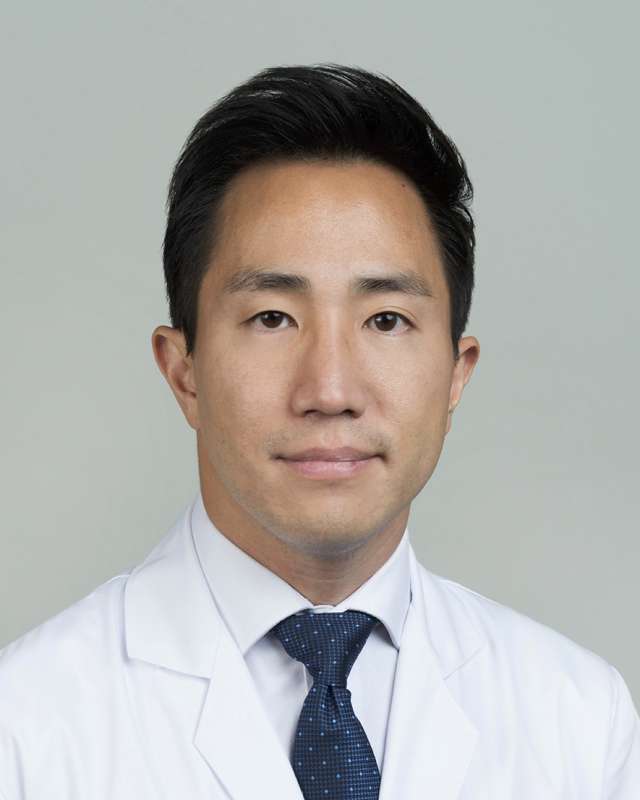Spotlights

Faculty Spotlight
Dr. Kim completed his neurosurgical residency training at UCLA with a fellowship in stereotactic and functional neurosurgery. His clinical interests include the treatment of primary and metastatic brain tumors deep within the brain using a wide variety of surgical modalities to best suit each individual patient and tumor type. Using technologies including the laser ablation of tumors (Visualase), white matter preserving corridor surgery (BrainPath), and stereotactic radiosurgery, he is able to treat many tumors traditionally deemed “inoperable.” In addition to the treatment of tumors within the brain, Dr. Kim specializes in advanced endoscopic techniques to surgically remove tumors of the pituitary and skull base. Working hand-in-hand with a multidisciplinary surgical team of otolaryngologists and ophthalmologists, he is able to treat tumors in a minimally invasive manner that avoids large craniofacial incisions and maximizes functional outcomes.

Nurse Spotlight
"My position as the UCLA Brain Tumor Center Nurse Navigator is extremely rewarding professionally and personally."
Our brain & spinal tumor patients are very important to me, and I advocate for our patients to ensure they receive timely care and support. I triage patient calls, answer questions, and navigate the patient and family through the next steps of their medical journey. I also coordinate weekly brain tumor board meetings and coordinate appointments between neurosurgery, neuro oncology, general oncology, and radiation oncology. A coordinated team effort translates into timely treatment and better outcomes for our patients. I also have a special interest in neurosurgical patients, because my family was personally affected.
When I was a teenager on the East Coast, my father was diagnosed with a brain tumor. My father was a major league baseball umpire, and traveled frequently during his career. My mother began to notice my father’s handwriting and personality changes, but attributed those symptoms to work stress. During a brief work hiatus at home, my father had a seizure, and was taken to the ED. Imaging revealed a right frontal meningioma, and he subsequently had a tumor resection. He had a few more craniotomies during his life, and he was able to have a full and productive life. However, my father’s illness was life changing for all members of our family. It was also difficult for my mother to navigate the medical system, and supportive resources were very limited.
More recently, my brother was diagnosed with a cerebral aneurysm. My brother had lunch after completing a gym workout, and later developed a headache, nausea, and vomiting. He went to his local ED, where he was diagnosed with food poisoning. During a conversation with his wife, she mentioned my brother was also feeling “fatigued.” I recognized my brother’s symptoms, and requested he immediately go to a major hospital ED for a brain scan. His imaging revealed a bleeding aneurysm. He eventually had two cerebral vascular surgeries, and thankfully made a full recovery. I realized how daunting and stressful brain surgery can be on the patient and family. Additional resources, support, and a main hospital contact are vital during such challenging times. The brain tumor nurse navigator role has been my most personal and gratifying position. Our brain tumor center receives patients from all over the world. I feel privileged to help our patients receive the best care, and to work with such a wonderful and dedicated team!